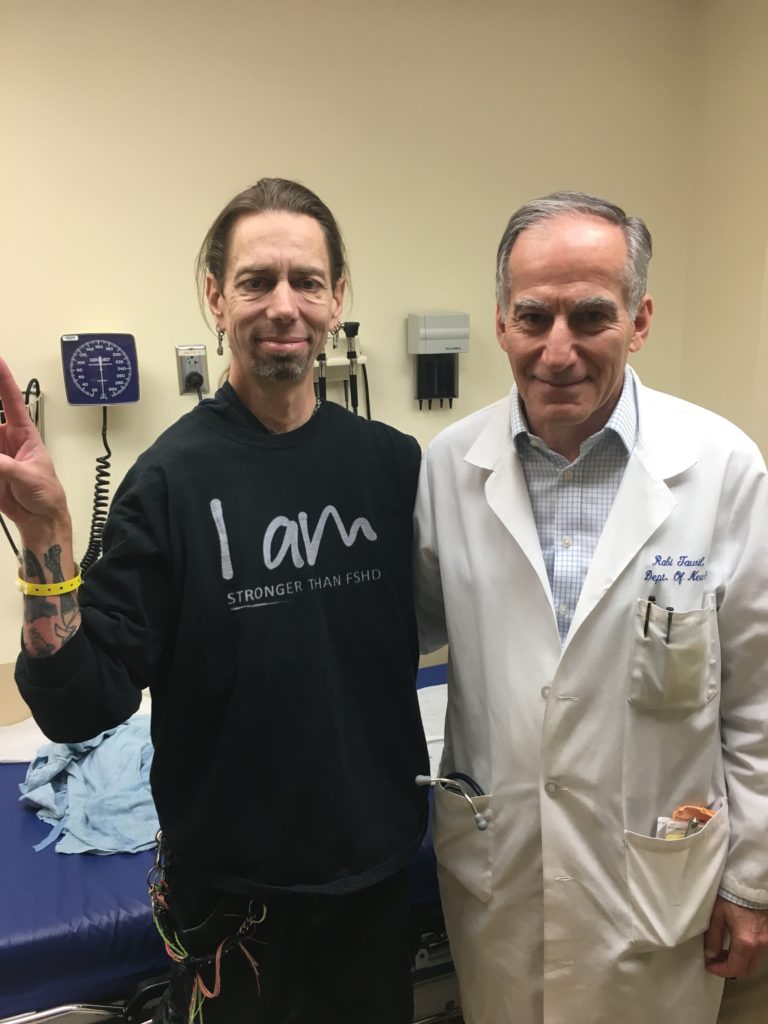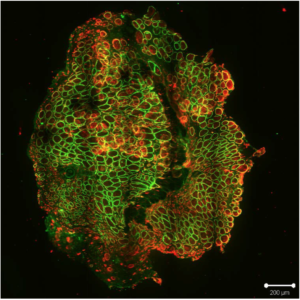
To crack the code of FSHD, patients are absolutely essential
All of the breakthroughs—the discovery of the genetic causes, understanding why some patients vary so greatly in the severity of their symptoms, teasing out the biochemical pathways that could point to future treatments—were made because patients stepped up to the plate.
Too often, we hear patients say they’ll volunteer when there’s a treatment. But we will never get to a treatment unless patients participate in fundamental research now. FSHD is uniquely human, so no laboratory mouse can ever fully model the disease. The genetic “package” that causes FSHD is found only in people. We owe an enormous debt to the patients who give DNA samples. Who submit to long interviews and exhausting physical tests. Allow a surgeon to cut out a small muscle sample. Who fight claustrophobia to lie in the narrow bore of an MRI machine.
Equally important are patients’ family members, both affected and unaffected, who provide the best experimental controls because of their shared genetic and environmental backgrounds. A parent or sibling who has very mild symptoms may hold the key to understanding the factors that protect against the full-blown development of FSHD symptoms in a more severely affected family member.
We are more hopeful today than ever before that a treatment is within sight. We cannot guarantee when that treatment will arrive, but here’s one thing we guarantee: If you volunteer for research, your participation will without question help move us a step closer to that day.
Scientific Overview of FSHD
Read the latest on wikipedia
Glossary of Scientific Terms
New FSHD biotech launched with $55 million
From BusinessWire CAMBRIDGE, Mass.–(BUSINESS WIRE)–Third Rock Ventures, LLC today announced the launch of Fulcrum Therapeutics, a company focused on unlocking gene control mechanisms to develop small molecule therapies. Fulcrum will… Read More »
Mouse grows a human muscle
With a little zap, transplanted human cells flourish in a mouse By June Kinoshita, FSH Society It’s like something out of Dr. Frankenstein’s underground laboratory, but a University of Maryland… Read More »
FSH Society Awards Grant to Establish Clinical Trial Research Network for FSHD
(PRWEB) JUNE 14, 2016 The FSH Society, a nonprofit, patient-driven organization that supports research and education for individuals with facioscapulohumeral muscular dystrophy (FSHD) and their families, today announced that it… Read More »
aTyr Pharma to advance Resolaris™ clinical programs
The San Diego-based biotech company, aTyr Pharma, Inc., released findings on March 30, 2016, from a Phase 1b/2 clinical trial of its experimental therapy Resolaris in adult facioscapulohumeral muscular dystrophy (FSHD) patients. While… Read More »





